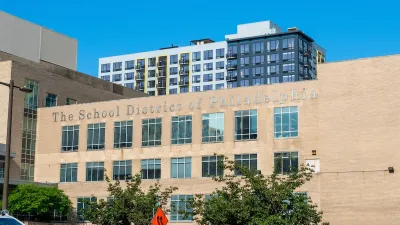The law calls for heat mitigation measures when temperatures exceed 88 degrees.

A new state law in New York will ensure students and staff in schools are kept safe from extreme heat. “By setting clear guidelines for extreme heat conditions, the bill will help schools ensure their spaces are conducive to student learning, reduce unnecessary disruptions, and provide for the health and safety of all those in their buildings,” according to a WBEN article by Brayton J. Wilson.
“In June, Gov. Hochul announced the release of the Final Interagency Extreme Heat Action Plan, which advanced her directive to address extreme heat impacts on disadvantaged communities and on New Yorkers with increased risk of harmful health effects.”
The new law establishes a maximum temperature of 88 degrees and defines extreme heat condition days. “In addition, school districts will be required to take action to relieve heat-related discomfort when classroom temperatures reach 82 degrees. Such actions can include turning off overhead lights, pulling down shades or blinds, turning on fans, opening classroom doors and windows, turning off electronics, and providing water breaks.”
FULL STORY: Gov. Hochul signs bill to protect students, staff at schools from extreme heat

Maui's Vacation Rental Debate Turns Ugly
Verbal attacks, misinformation campaigns and fistfights plague a high-stakes debate to convert thousands of vacation rentals into long-term housing.

Planetizen Federal Action Tracker
A weekly monitor of how Trump’s orders and actions are impacting planners and planning in America.

Chicago’s Ghost Rails
Just beneath the surface of the modern city lie the remnants of its expansive early 20th-century streetcar system.

Bend, Oregon Zoning Reforms Prioritize Small-Scale Housing
The city altered its zoning code to allow multi-family housing and eliminated parking mandates citywide.

Amtrak Cutting Jobs, Funding to High-Speed Rail
The agency plans to cut 10 percent of its workforce and has confirmed it will not fund new high-speed rail projects.

LA Denies Basic Services to Unhoused Residents
The city has repeatedly failed to respond to requests for trash pickup at encampment sites, and eliminated a program that provided mobile showers and toilets.
Urban Design for Planners 1: Software Tools
This six-course series explores essential urban design concepts using open source software and equips planners with the tools they need to participate fully in the urban design process.
Planning for Universal Design
Learn the tools for implementing Universal Design in planning regulations.
planning NEXT
Appalachian Highlands Housing Partners
Mpact (founded as Rail~Volution)
City of Camden Redevelopment Agency
City of Astoria
City of Portland
City of Laramie





























